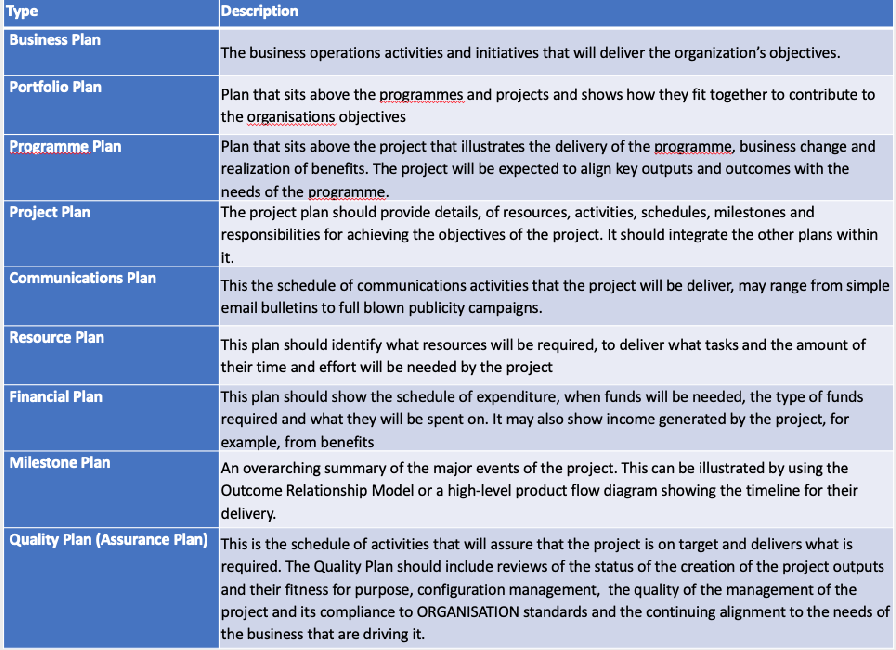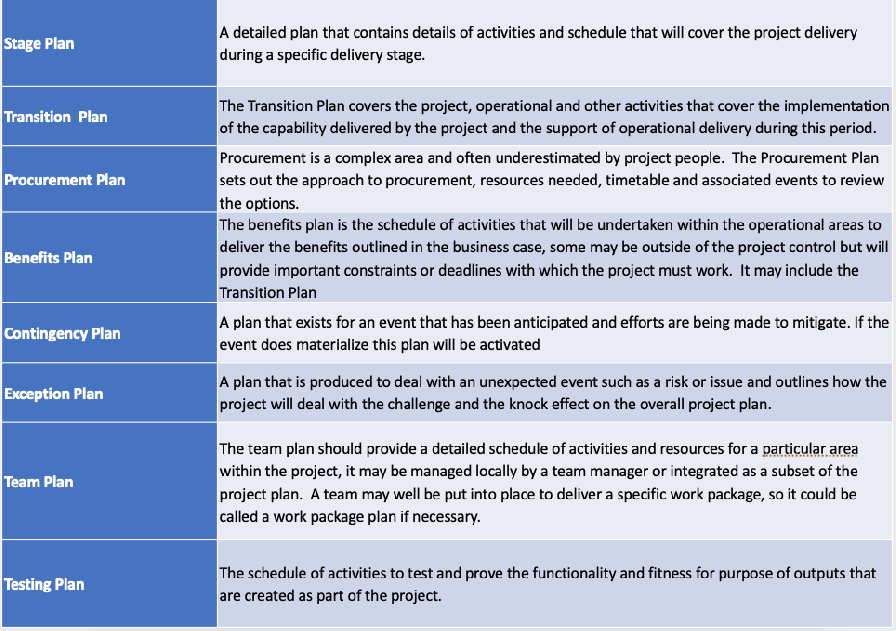eLearning Log in
Login here using your username and password
What are the types of project plans?
Introduction
A project plan is normally made up of a number of component plans, which cover a range of specific areas that a project may need to address, this is a summary of main plans that may be required to deliver a project and the existing plans that may contribute or affect the project plan.
It is useful to consider ‘change’ and operations levels in an organization.
At the Top, there will be Business Plans with business operations activities and initiatives that will deliver the organization’s Medium Term Financial Plan. Within this plan will be ‘change objectives’ to be delivered by the change portfolio, and its programmes and projects. These may introduce programme or project constraints, for example, deadlines or periods when change cannot happen.
We will focus on the ‘change’ agenda.
A Programme Plan’s scope will include (high level) project plans, transition plans, benefits review plans, quality assurance/audit plans.
A Project Plan will include high-level stage controls and major milestones.
A Stage Plan will include plans for communications, resources, finance, milestones, quality control/tests. Exception Plans typically replace an existing stage plan as a consequence of being directed to produce one as tolerances are to be exceeded. Contingency plans are conditional risk responses that should be incorporated into stage plans as and when risks materialize into issues for which is the pre-defined response.
There may be a specific Stage Plan that addresses procurement, or procurement may be part of another stage plan.
If a Stage plan is at an insufficient level of plan to deliver the products then Team Plans may need to be developed at a higher level of detail than the stage plan. This is typical of rich technical activities.
The following table is a summary of the plans that you might come across


